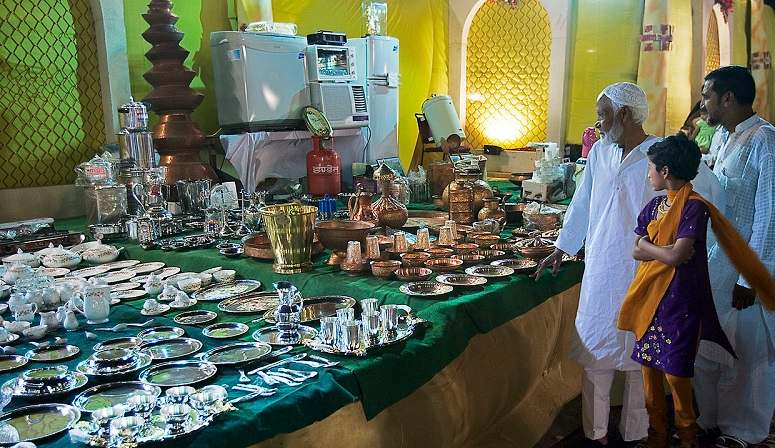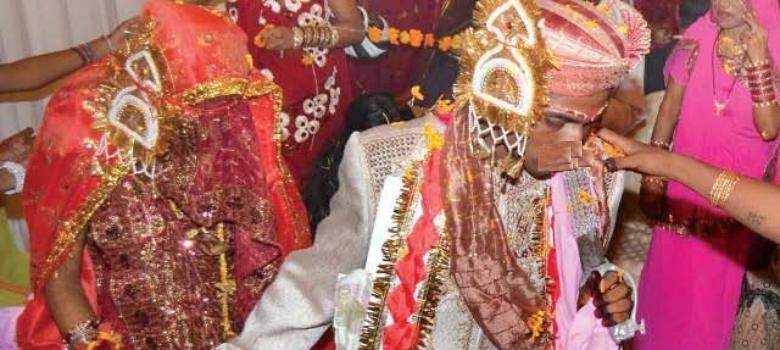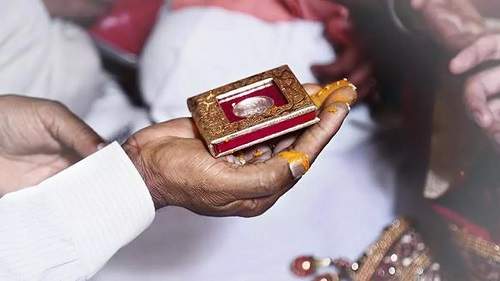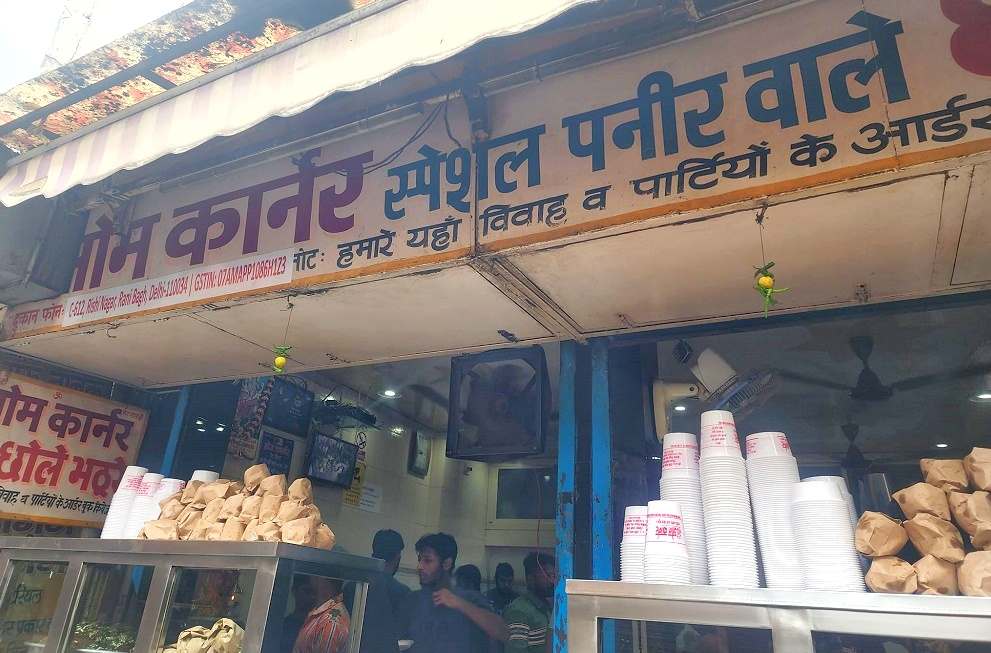Even in the twenty-first century in India, the dowry system is still prevalent and is running rampant. No matter how divided India is in the caste system, it appears united for dowry. May not apply to all but true to most. Yes, it is like a social competition and prestige game.
However, instead of finding the perfect match, the bride’s family has to think of the most surprising gifts, cash and gold, to win over the groom’s family. It is a socially promoted narrowly twisted reality program in which the bride’s family competes to be the “ultimate gift giver”.
But keep your wallet handy, as this practice has been banned since 1961! It’s like a dowry version of hide and seek.

The government says “there is no dowry permit,” yet some families argue that “a little dowry won’t hurt anybody, right?” It’s like a sneaky game of “dodge dodgeball” where the players don’t care about getting caught, but it’s also not as fun as the traditional dodgeball we used to play in school.
Even though it has been illegal for decades, the dowry system is still practiced in many parts of India, showing that old traditions die hard and some simply refuse to listen!
So, take note, kids: The dowry may be traditional, but it’s not cool. Let’s throw it over the edge and make it a thing of the past like bell-bottoms and mullets!

Yes! There is a complicated and romantic relationship between dowries and grooms in government jobs in India. There is a phenomenon at which many people scratch their brains and laugh. For many boys in India, marriage is just a way to earn money and get a maid as wife.
No matter how much he supports it, but in dowry, girls and their families estimate their land and wealth before marriage, how much will have to be given. Girls want a well-paid boy for marriage and in return she gets a permanent job in her in-laws house, to be a maid.

One can speculate on the reasons for this strange association. Perhaps it is because grooms in government jobs are seen as a desirable catch in the marriage market like a rare Pokémon that every family hopes to catch. After all, these grooms are the true MVPs of the matrimonial game, with the prospect of a steady salary and job stability!
Social status and financial security
The biggest catch in the Indian matrimony market is the elusive “Government in Government Service” search! It’s like finding a unicorn or discovering a hidden gem during a treasure hunt. Because only about 2% of the work in India is on government jobs.
These magical creatures are the stuff of dreams, with their promised stability, job security and steady income! Consider the excitement of introducing your government servant groom to his family – envy in their eyes, admiration in their voices, and as a sign of approval they mentally calculate the dowry they will get to hold this precious one.
Must be provided to catch. Step aside, Prince Charming: the real knight in shining armor in the modern Indian fairy tale is the groom in a government job!
But it is not just the groom that is in high demand; He has a whole family too! Long-lost cousins, distant relatives, and even submissive neighbor aunts are fighting for the groom’s family’s newfound social standing and financial convenience as a result of the government’s position.
It’s like winning the lotto, except for money, you get a major job title and a luxurious government mansion!

The advantages of being a government servant groom do not end here. Do you need extra respect? No issue; Just show your official ID and you will get a different respect in everyone’s eyes. Want to impress your in-laws? Just say the words “Government Job” and watch their eyes gleam with admiration. Who needs abs when you have the unmatched charisma of a government job groom?
Swiping left or right on dating apps is no longer the norm in India; It’s all about swiping for that sweet, sweet government job groom. Because who needs roses and chocolates when you can have lifelong pension and job security?
Cheers to all the would-be brides out there who are ready to break the bank for that elusive government job groom – may your dowry be substantial and your happiness be fueled by public sector perks!
Demand for higher dowry and Investment
It’s like a matrimonial stock market in India, and grooms in government jobs are the hot commodity everyone wants to invest in! With their steady income and job security, these grooms are goldmines in the marriage market.
But beware, their families aren’t just looking for a bride, they’re looking for a jackpot! It is like bidding where the demand for dowry keeps on skyrocketing with every promotion or increment.

The notion of a secure job turns into dowry expectation which is through the roof! It is like the groom’s family trying to capitalize on their son’s employment status and shower dowry. It is a game of dowry demands where the stakes are high, and the groom in a government job is the star player with a jackpot on his head!
Bribery a corruption: some kind of wedding tender
A bridegroom in a government job, flaunting his government badge, also brings along his rate list from his prospective bride and her family. As if it were some kind of wedding tender.
There are strange ways of demanding dowry from the boys. He may say with folded hands that “Brother, we do not want anything except a girl in marriage, or we will not demand but the girl’s father will give something for the girl“, as if he is an indirect greedy jinn.
He is like a dowry digger, eager to amass wealth by any means necessary, even if it means abusing his privileged position. It is like a shoddy business transaction, with the bridegroom acting like a crooked entrepreneur, demanding illegal gratification in the form of huge payments.
winning the lottery
In India’s wild world of dowries and government job bridegrooms, social and cultural conventions cannot live without attending to it. It’s like a battle of gender discrimination versus patriarchal norms, with the bride’s family expected to bring out their best dowry moves.

In some regions, getting a government position is akin to winning the lottery, and women’s families are pressured to pay dowries in order to find the desired husband.
It is as if dowry and government jobs have become established in a heaven of social norms, wherein the bride’s family is required to perform the dowry ritual to meet the prevailing social norms.It is a strange mix of history, expectations and pressures that result in a dowry-groom combination as intriguing as trying to moonwalk in a saree!
How relatives encourage dowry in Indian marriages
In Indian marriages, relatives can sometimes be the ultimate cheerleaders when it comes to encouraging dowry. It’s like a full-blown support squad, swaying to a fanfare made of societal norms and cultural expectations.
They may drop subtle hints, such as “Make sure the dowry is generous enough to impress the groom’s family!” or “Don’t forget to include a new car in the dowry, it’s a must these days!” It is as if they are providing a playbook on how to win the game of dowry.
Relatives may also engage in subtle comparisons, such as “Did you hear? Your cousin’s daughter-in-law got a huge dowry, you should aim for something similar!” or “Your niece’s wedding was the talk of the town, thanks everyone for the dowry!” It’s like the dowry Olympics, where the goal is to best each other with the most extravagant dowry.
In some cases, relatives may even use emotional blackmail, such as “If you really care about your daughter’s happiness, you’ll make sure the dowry is impressive!” or “Don’t you want your son to marry into a wealthy family? Dowry game up!”
It’s like a Guilt Trip Express, leaving no room for negotiation.
Relatives may also contribute to the dowry by demonstrating their social status and wealth, creating an atmosphere of competition and peer pressure. They may show off their expensive gifts and dowry items, making the bride’s family feel inadequate if they do not match. It is like show-and-tell of dowry, where pressure is exerted to impress.
Overall, relatives can play an important role in encouraging dowries in Indian marriages, using a mix of subtle and less subtle tactics to press for larger and better dowries. It is a complex web of social expectations, cultural norms and peer pressure that can make the dowry game even more challenging for the families involved.
Declaration: Before you start criticizing me for generalizing, let me make it clear that I know not everyone is like that. This is for bindaas families who fight for dowry like superheroes. But, let’s face it, in my experience, that’s what happens most of the time. Searching for a family that doesn’t expect a dowry is like searching for a needle in a haystack. It’s like seeing a unicorn or a mermaid in person – it’s rare and elusive! So, don’t let your underwear get tangled up. I am only saying what I have seen, and the marriage market has been a dowry-dominated circus!

About the Author
Manish love to write and he is a Civil Servant. Users can follow Manish on Instagram ![]()
Why do most People Judge Others so Quickly ? and How to Avoid it
Have you ever made a judgment about a person or situation and then realized that…
Cise D’amour: The Love Chair and Edward VII
In the early 20th century, an unknown French furniture maker created a Love Chair for…
How can I rename Labels in WooCommerce ?
To rename labels in WooCommerce, you can use a plugin like “Say What” or add…
Have you ever been to Jibhi?
If you are looking for a “value for money” destination where you get abundant natural…
Where to eat Delhi’s best Chole Bhathure ?
Chole Bhathura holds a special place in the hearts of Delhiites. So I decided to…
Why Navjot Singh Sidhu was jailed, He released after 10 months
Navjot Singh Sidhu was imprisoned in May 2021 after sentenced a one-year punishment in a…
1. What is the trend of government job grooms in India who are marrying for perks?
2. What are the reasons behind this trend, and why are government jobs so attractive to potential grooms?
3. How are women impacted by this trend, and what are the consequences of this type of marriage?
4. What steps are being taken by the government and society to address this issue, and is there hope for change in the future?
5. What are the broader implications of this trend, and what does it say about the state of Indian society and culture?
Click here to get answer






